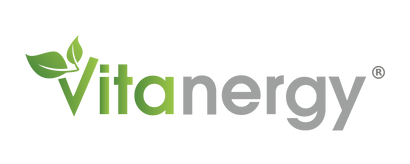
Milk Thistle: A Healthful Supplement for Your Liver
Milk thistle (silymarin) is a daisy and ragweed family flowering herb. It comes from the Mediterranean. It's also known as Mary thistle or holy thistle.
The purple blossoms and white veins on this thorny plant result from a drop of Virgin Mary's milk landing upon its leaves. The active elements in milk thistle are silymarin plant chemicals.
Milk thistle extract is its herbal medicine. Milk thistle extract contains a significant level of silymarin (65–80%) from the milk thistle plant.

Milk thistle silymarin is an antioxidant, antiviral, and anti-inflammatory. It has even been used to protect the liver from snake bites, alcohol, and other environmental toxins.
Why Use Milk Thistle?
Traditionally, milk thistle was used to treat liver and gallbladder issues. Experts say the herb's main active component is silymarin. Milk thistle seeds contain silymarin, an antioxidant. Its benefits to the body are unknown. However, it is sometimes used to treat cirrhosis, jaundice, hepatitis, and gallbladder diseases.
Milk thistle may help treat cirrhosis and chronic hepatitis caused by alcoholism, autoimmune illness, or viruses. Thistle may also benefit those whose livers have been harmed by industrial pollutants like toluene and xylene.
Milk Thistle’s Beneficial Compounds
Milk thistle's main active component is silymarin. This group's primary component is silybin.
Silymarin is found in the thistle's blooms and leaves but is concentrated in the seeds. One theory links milk thistle's health advantages to silymarin's antioxidant capabilities.
Silymarin may work as an antioxidant by scavenging and inhibiting the generation of free radicals, which can cause cell damage and disease. It may also reduce inflammatory reactions.
Milk thistle teas contain some silymarin, although not as much as extracts. The herb is also poorly absorbed and non-water soluble. It is not the best technique to absorb plant chemicals.
5 Milk Thistle Research-proven Benefits
- Protects the liver

People with liver damage from alcoholic liver disease, non-alcoholic fatty liver disease, hepatitis, or even liver cancer commonly utilize it as a supplemental therapy. It also protects the liver from toxins like amatoxin, which is poisonous if consumed.
Taking a milk thistle supplement has been proven to improve liver function in persons with liver disorders, suggesting it may help minimize liver inflammation and damage. Milk thistle may help protect the liver from free radical damage caused by harmful chemicals metabolized by the liver.
Moreover, one study found that it may marginally extend the lives of persons with cirrhosis. The findings of investigations on milk thistle extract and liver illness have been mixed. And while milk thistle extract is often used to treat liver disorders, there is little proof that it can prevent them, especially if you lead an unhealthy lifestyle.
- Protects your bones
Osteoporosis is a condition that causes bone loss. It creates weak, fragile bones that break readily, even after mild falls. Milk thistle has been demonstrated to promote bone mineralization and protect against bone loss in vitro and in vivo. Thus, milk thistle may be used to prevent or delay bone loss in postmenopausal women.
- May help in the management of diabetes

Managing Type 2 Diabetes with Milk Thistle Milk thistle may be an effective supplemental medication for managing type 2 diabetes. One of the components in milk thistle may operate like other diabetes treatments by improving insulin sensitivity and lowering blood sugar.
A recent study indicated that consuming silymarin regularly reduced fasting blood sugar and HbA1c, a measure of blood sugar control. Milk thistle's antioxidant and anti-inflammatory qualities may also help reduce the incidence of diabetes complications such as renal damage.
- May Prevent Age-Related Brain Decline
For over two thousand years, milk thistle has been used to treat neurological disorders like Alzheimer's and Parkinson's. Its anti-inflammatory and antioxidant characteristics make it potentially neuroprotective, slowing the aging brain's degeneration.
Silymarin has been demonstrated to protect brain cells from oxidative damage in human and animal studies. These investigations also found that milk thistle reduced the number of amyloid plaques in the brains of Alzheimer's disease rats.
Amyloid plaques are sticky amyloid protein clumps that form between nerve cells as we age. They are found in significant concentrations in Alzheimer's patients' brains, suggesting that milk thistle could be used to treat this challenging condition.
Also, whether milk thistle is absorbed well enough in humans to cross the blood-brain barrier is unknown. It is also uncertain what dosages are required for a good effect.
- May improve cancer therapy
The antioxidant actions of silymarin may have anticancer effects, which could help cancer patients. Milk thistle has shown promise in minimizing the negative effects of cancer treatments in animals. It may also help chemotherapy function better against certain malignancies and even kill cancer cells in rare cases.

What Are the Milk Thistle Risks?
Risks: Milk thistle can cause allergies. Are you allergic to artichokes, kiwi, ragweed, daisies, marigolds, or chrysanthemums? Consult a doctor if you have diabetes or endometriosis. There is no scientific evidence that milk thistle is safe for pregnant or nursing mothers. Consult your doctor if you're pregnant or nursing. Milk thistle is not for kids.
Symptoms: Over time, milk thistle appears to have few adverse effects. People get nauseous, dizzy, itchy, and bloated.
Interactions: Consult your doctor if you routinely take any medications. Infections, sleeplessness, and blood pressure medications may all interact with it. Diabetes patients should see their doctor before using milk thistle as it may cause low blood sugar levels.
Takeaways

Vitanergy Liver Health Milk Thistle is standardized to 150 mg silymarin, the active flavonoid complex responsible for milk thistle’s powerful hepatoprotective effects. It is also formulated with dandelion and turmeric, which have also been used for centuries to treat liver disorders. Click here to find out more.
Also in Blog posts

Supporting Your Liver Health with Natural Ingredients

Naturally Nurturing: The Best Supplement Gifts for Moms


